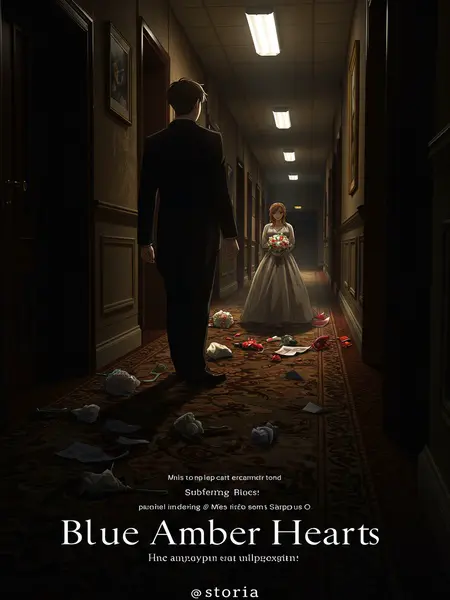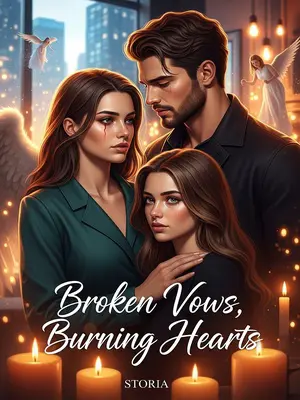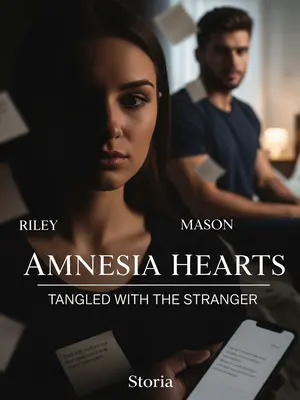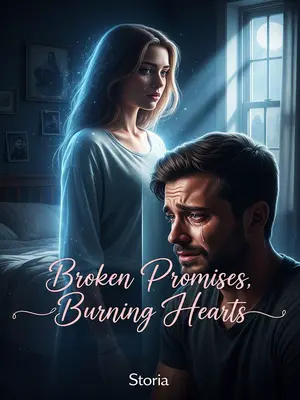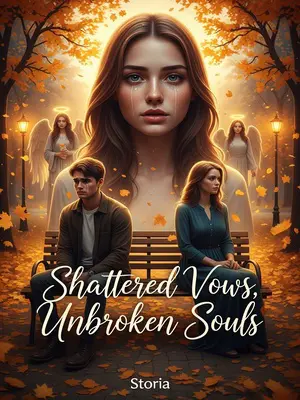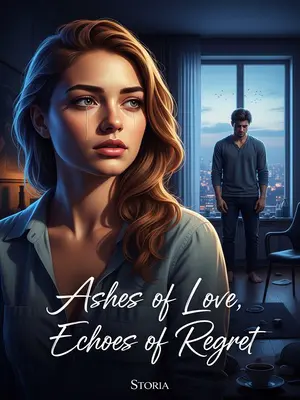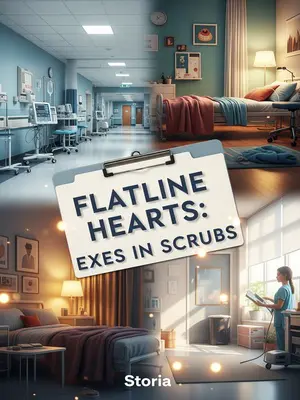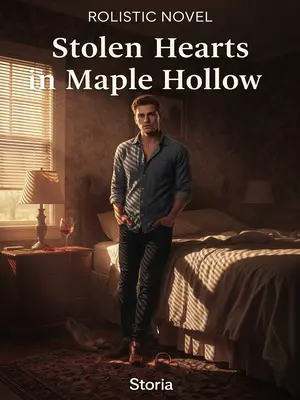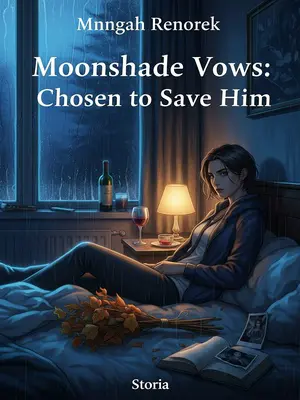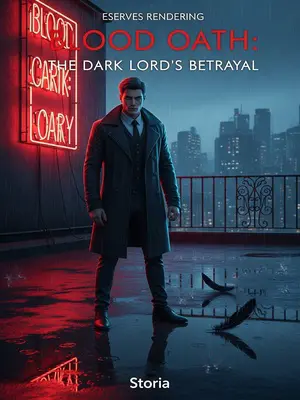Chapter 1: Broken Before the Wedding
About a month before my wedding, my body turned traitor. I was twenty-three, young and supposedly at my prime, but suddenly, I couldn’t perform sexually. Every night, I’d lie awake, skin prickling with anxiety, my heart pounding so hard I could feel it in my throat. My mind raced with panicked thoughts—what if I never recover, what if I ruin everything? The silence in my body was deafening, a stubborn ache that made me feel powerless and alone.
This problem finally eased three days before the wedding, when I found myself in bed with Emily, who I wasn’t even sure I could call an ex-girlfriend. That night, something changed. Maybe it was the way her presence felt familiar, the way her warmth seeped into my skin, but for the first time in weeks, a spark flickered inside me. It was tentative, fragile—like the first hint of dawn after a long, dark night.
Before that, I tried everything: I watched romantic adult films, from blockbuster stars to obscure indie actresses, hoping for any kind of reaction. I’d scroll through video after video, my eyes glazed over, searching for a flicker of desire. But nothing worked. The emptiness inside me only grew, frustration mounting as my mind and body drifted further apart.
I even bought a hands-free device with a warming feature, desperate for anything that might help. But the cold, artificial plastic and its mechanical hum made me feel even more disconnected. Each failed attempt left me feeling smaller, more defeated—like I was trying to fix a broken engine with the wrong tools, and the harder I tried, the worse it got.
At twenty-three, swallowing my pride felt like choking on broken glass. I hid behind sunglasses and walked into the harsh fluorescent glare of a local pharmacy, buying a box of little blue pills. My cheeks burned as the pharmacist gave me a knowing look, and I kept my head down, hands shaking as I paid. I left the store praying for a miracle, but deep down, I was haunted by the stigma and my own embarrassment.
After confirming the pills didn’t work, I played the "Our Father" prayer on my phone and chain-smoked half a pack of Marlboros. The smoke curled around me, bitter and familiar, as I closed my eyes and whispered for help. I begged for some kind of sign, some comfort—anything to remind me I wasn’t alone in this mess.
During that time, a single dream haunted me, night after night:
I was sinking to the bottom of the ocean, water pressing in from all sides, my limbs heavy and useless. I felt trapped, like a worm encased in deep blue amber, slowly sinking toward oblivion. Around me, the seawater shimmered with colors—vivid and beautiful, yet always out of reach. The sensation was suffocating, surreal. I was caught between worlds, desperate to break free but unable to move.
Our wedding date was set for October 31, 2020. Each day, the pressure of the ocean seemed to tighten around me, squeezing the hope from my chest. Eventually, in my dream, I transformed from blue amber into a vacuum-packed dried fish, drifting on the ocean floor. The helplessness was overwhelming—like being stuck in a place where time and hope both stood still, unable to breathe or escape.
Soon, I realized this might not be just a physical problem.
Because my left eye’s vision started deteriorating—sometimes blurry, sometimes sharp, but always unsettling. It felt like my body was trying to warn me, signaling something deeper and more complicated than I wanted to admit.
A huge gray patch began to cover the center of my left eye, like a smudge on a windshield after a rainstorm. It distorted everything I saw, making the world feel distant and unfamiliar.
I started to wonder if it was a software problem—something in my mind, not just my body.
Even though this was more serious, I tried to take comfort in my determination. My mind was willing, but my body was failing me in ways I couldn’t control. I felt like a computer with a corrupted system—ready to run, but unable to boot up.
After Alex received the electronic wedding invitation I sent, he replied with his usual laid-back blessing:
"Ethan, you’re killing it—winning at work and love. Congrats, man!"
I told him, "Honestly, I feel like my life’s falling apart."
Alex replied with a sticker—a dancing avocado, goofy and carefree.
I wasn’t mad. I understood him.
I understood everyone who thought I was being dramatic or ridiculous.
From the outside, I was living the dream:
I’d just switched jobs, becoming the content director at a startup listed on NASDAQ.
I was about to marry my longtime girlfriend.
I’d bought a house, and my shiny new Tesla Model 3 sat in the garage.
I wasn’t a superstar, but for a small-town kid at twenty-three, I’d earned half the title "promising youth."
When you stand out, any complaint sounds like bragging. I used to think effort would make problems disappear, but now I saw they just changed shape.
Alex then sent a long voice message, venting about his own crossroads: after two years of coasting at home, his dad demanded he either take the civil service exam or join the family business immediately.
He felt lost facing the huge family enterprise his father built, and hated the idea of a life where he could see the ending from the start.
Thanks to his family’s support, Alex was a pure idealist. In his mind, nothing was impossible—if he hadn’t done it, it was only because he didn’t want to.
In our small city, Alex could buy imported fruit on credit, call the arcade owner "uncle" and get a thousand game coins for his friends, and book hotels just by dropping his name.
So even though he didn’t get into grad school, didn’t land a job, and skipped government work, he still believed the future was his to take.
Because he was sure that whenever he decided, he could make anything happen.
I sent him another sticker—this time a cat giving a thumbs-up.
And just like that, our moment of mutual vulnerability fizzled out before it even started.
I lay on my bed, scrolling aimlessly through Facebook:
My fiancée posted an old photo—our first trip to the beach. I wore a knockoff Nike shirt, my face a mess of acne, while she clung to my arm, her smile bright as sunlight.
Alex posted a picture of rolling ocean waves with the caption: "If only the sea could wash away my worries."
Emily was working in Charleston now. Her post was a solo shot by the shore, holding a slice of orange near her lips, the sea breeze tossing her long hair over her shoulders.
I kept scrolling until the gray patch in my left eye grew so large the images blurred together, text overlapped, and my phone slipped from my fingers onto the mattress...
That night, for once, I didn’t dream of the sea—I dreamed of Emily.
Back in the summer after sophomore year, I was hustling at a water purifier company. Emily was on the team next door.
She was a nursing student at a medical college, three stops away from my campus.
The first day I saw her, I turned to my coworkers and said, "That girl’s really pretty."
She wasn’t classic model-beautiful—just a little chubby, with a baby face, clear skin, and long hair. She radiated the comfort of summer, like a fresh green tangerine.
I had a knack for fate giving me chances to get close to girls I noticed.
When they split up sales areas, I always ended up with her.
I’d inherited an old electric scooter from Alex, and I’d offer her rides "since it was on my way."
That’s how we became friends.
Selling water purifiers meant going door to door. I loved riding the scooter with her after 4 p.m.—the sun softer, crowds gathering at the community entrance.
She was sweet and harmless, handing out flyers way faster than me.
Me? My face looked too mischievous, my grin too sharp. People steered clear.
My sales numbers were always at the bottom.
I wondered if it was my handwriting.
Our flyers had product info printed, with a blank spot for name and contact. Mine looked sloppy.
So I asked Emily for help; she wrote my name and number, and I treated her to milkshakes.
Sure enough, my sales started climbing.
That summer, we ate together, rode the scooter for work, watched movies, picked up paychecks, and went shopping.
I found out she’d been dumped by a jerk the year before and hadn’t gotten over it.
One night after a movie, Emily said, "I think I can do without a boyfriend."
I asked, "Why?"
She shrugged. "Because we’re happy like this. Boyfriends are just too much drama."
The company gave us dorm rooms. Every afternoon after she washed her hair, she’d stroll downstairs to let it air dry.
I told her, "You look way better with your hair down than in a ponytail."
The next day, while we ran deliveries, she wanted to drive the scooter. I hopped on the back and noticed she hadn’t tied up her hair.
Her hair brushed my nose, soft as foxtail grass swaying in the summer breeze—like being a kid again, lying on a mountaintop.
That day, I figured out why my sales improved.
At the community entrance, she handed a flyer to a middle-aged woman, who tossed it on the ground a few steps later. I picked it up—Emily had written my contact info on it.
Summer ended quickly. She had to move back to her school dorm. Lots of guys wanted to help her with her bags.
I quietly asked, "Want me to help you move? It’s on my way."
She said, "Sure. Tomorrow afternoon."
I dropped her at the dorm entrance. "I’ll wait here for you."
She peeked inside. "School hasn’t started yet, the dorm mom’s not here, nobody’s inside. Help me carry my stuff up."
It was my first time inside a girls’ dorm. She introduced me to every roommate and took me to her favorite rooftop.
She leaned on the railing. "When I’m down, I come up here and eat fruit."
I asked, "Feeling better now?"
She smiled. "Much better. Thanks."
I said, "Thank me?"
She replied, "You made me forget him."
Her eyes were so clear, they seemed to hold the sky. The light made her face glow softly. I wanted to kiss her forehead, but I kept it to myself.
She didn’t know then that forgetting someone only meant their spot in your heart was filled by someone else.
Forgetting a jerk might just mean meeting another jerk.
The day before, my ex-girlfriend who’d dumped me three months ago said she was coming back.
I was someone who lived by inertia—avoiding choices, fights, responsibility.
Emily took me to the best seafood boil near her school.
As we left, an old lady sold oranges by the gate. I bought two pounds.
Emily warned, "Oranges this time of year are super sour."
I peeled one, handed her the rind. "But the smell makes people happy."
She sniffed. "Really?"
I handed her the bag. "For you."
She picked out two. "Here, you take a couple."
I said, "Next time you’re down, go to the rooftop and peel an orange."
Later, she visited my school twice. I took her for mac and cheese and fried yogurt.
After my girlfriend came back, Emily and I drifted apart.
Junior year, I made some money writing and bought her an orange pendant online.
She sent me a pen called the Eternal Pen, supposedly able to write forever.
I lost track of how many times she peeled oranges on that rooftop.
That dream about her didn’t change my life.
I was still stuck. My body wouldn’t cooperate, the gray patch in my eye grew, and insomnia hit hard.
I tried to fix myself—better sleep, healthy food, swapped energy drinks for ginseng tea.
But I started dreading the dawn, dreading the thought of getting up.
Every night, I prayed: Please let the world end tonight, so I won’t have to face tomorrow’s sun.
I kept reflecting on my life: step-by-step graduation, a decent job, a wedding pushed by my mother-in-law, a house bought on my parents’ advice. Everything so normal, so rhythmic.
Waking up from another suffocating dream, I decided to shake things up before the wedding. I wanted life to know I wouldn’t just surrender.
I didn’t have the guts to challenge two families, but I could ruin myself. I scrolled through Emily’s Facebook and made up my mind—resign and go to the beach in Charleston.
